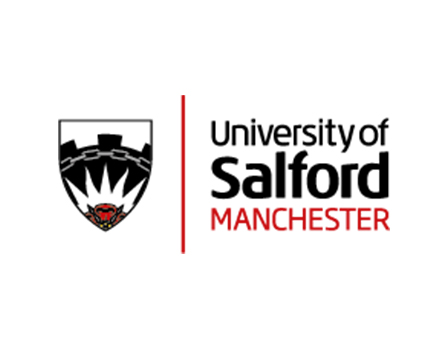Global health has come a long way in recent decades, yet today we face a world shaken by conflict, new diseases and the growing impacts of climate change. Health services everywhere are under pressure, juggling tight budgets, and staff shortages, while keeping up with changing patient expectations. In times like these, having the right foundation makes all the difference, and you’ll find that at the University of Salford’s School of Health and Society. With world-leading research, expert academics and training alongside NHS partners, this forward-thinking school empowers you to make a difference in an ever-changing healthcare landscape.

Salford’s programmes mix research-informed teaching with practical skills to help you progress professionally. Source: University of Salford
Specialist postgraduate programmes leading real-world impact
The University of Salford’s healthcare programmes are designed to make a difference and meet the current needs of today’s patients. For example, MSc Nursing’s courses are shaped by the while MSc Diabetes Care is developed with national and international diabetes experts as well as physiologists, podiatrists, nutritionists, and more. Through these programmes, you’ll build the critical thinking, research, communication, and analytical skills that modern healthcare leaders need.
The MSc Leadership and Management in Healthcare Practice equips healthcare professionals to think creatively and improve patient outcomes. “I found the course’s focus on leadership and management distinct from my clinical background and particularly beneficial for my future in both clinical and administrative roles,” says graduate Umamah Afzal. “The programme significantly broadened my perspective on leadership as I was introduced to a range of leadership styles, their intricacies, strategies and the pros and cons of each.”
Lastly, the MSc Midwifery aligns with the NHS Knowledge and Skills Framework, offering immersive simulation training to safely practice real-world scenarios.
Grow Your Career Through Practice-Led Learning
Each programme may be different, but they all place you at the heart of the learning experience. You’ll learn from academics, clinicians and guest speakers from the NHS and partner organisations, so that teaching is grounded in current professional practice. And through lectures, seminars, tutorials, simulation suites, or work-based projects, you’re always applying what you learn to real situations. Assessments focus on reflection and professional growth, so you leave with the skills for leadership roles in health and social care.
“The advanced training and research experience I gained significantly improved my clinical practice,” says MSc Diabetes Care graduate Mayssa Hamada. “The evidence-based approach helps me in developing comprehensive diabetes care programmes, benefiting both my patients and the broader medical community.”
Study with world-leading researchers
Salford’s master’s programmes stand out just as much for their research community. You’ll learn research methods, work with active researchers on your dissertation, and take part in projects tackling global issues. Many students have been recognised for their work, including making it to the finals of prestigious UK awards. And in the latest Research Excellence Framework (REF 2021), 78% of the university’s research was rated world-leading or internationally excellent, especially in nursing, midwifery, allied health, and social care.
Support and community, designed for your success
Postgraduate study can be challenging, but Salford has the support systems to help you succeed. There are dedicated staff who can guide you through your course, help with your research, and support your career development. There’s also askUS, which helps with wellbeing, mental health, disability, financial guidance, and practical matters. With both school-level and university-wide support working together, you’ll have everything you need to thrive in your studies and personal life.
That supportive spirit matches its welcoming, collaborative community. There are plenty of ways to get involved here, including seminars, group work, and professional networking opportunities. Beyond the school, Salford’s campuses are full of student societies, cultural events, and more.
A health hub on your doorstep
Once you step off campus, Salford puts you right in the middle of a busy and exciting healthcare scene. The city is home to National Health Service (NHS) trusts like the Northern Care Alliance, trauma hospitals such as Salford Royal Hospital, and private and community clinics. And because Manchester is just minutes away, you can also tap into the wider Greater Manchester health and social care network and meet professionals from all kinds of roles.
Ready to shape your future? Explore Salford’s Global Gold or Global Silver Excellence Scholarships to see what financial support is available to you.
Follow the University of Salford on Facebook, Instagram, LinkedIn, TikTok, and YouTube













